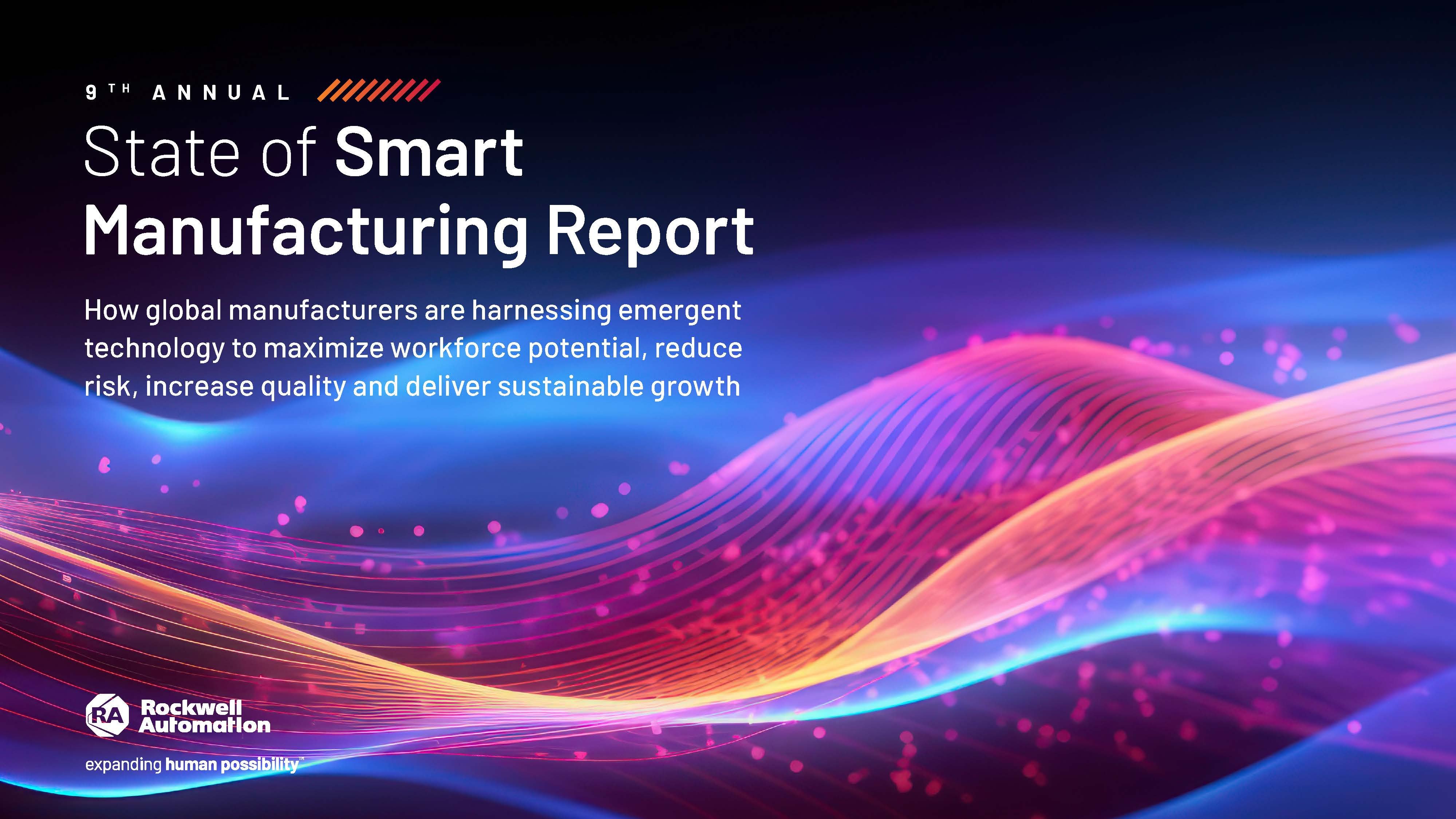Rockwell Automation, Inc. (NYSE: ROK), the world's largest company dedicated to industrial automation and digital transformation, today announced the results of the 9th annual “State of Smart Manufacturing Report,” offering valuable insights into trends, challenges, and plans for global manufacturers. The study surveyed more than 1,500 respondents from 17 countries, including the United Kingdom (UK), France, Germany, Italy, and Spain.
Among many findings, three major trends emerge from this report: the AI revolution is here for manufacturing, technology is being deployed to give the workforce superpowers, and building resiliency in operations is growing in importance.
"The world has changed, and manufacturing has changed with it, but there is more to do," said Asa Arvidsson, regional vice president sales, north region, Rockwell Automation. "Talent continues to be elusive globally. As manufacturers continue to seek opportunities for profitable growth, they are finding that uncertainty in workforce availability is impacting quality and their ability to meet their customers’ needs and transform at pace.
"The clear message from this report is that manufacturers view technology as an advantage for improving quality, agility, and innovation, and for attracting the next generation of talent. Manufacturers expect to mitigate risk through technology tied to process and people, build resiliency, and drive future success."
Key UK findings include:
- AI ranks as the top capability that manufacturers believe will drive the biggest business outcomes. 79% of UK manufacturers expect to use generative AI (GenAI) in their operations in 2024.
- 94% of UK manufacturers expect to use AI and ML in advanced analytics compared to 91% globally, the highest percentage of any country surveyed.
- A lack of skill set is the most significant barrier to implementing smart manufacturing technologies in the UK, at 33% - the highest percentage of all European countries surveyed.
- 25% of UK manufacturers believe that they lack the skilled workforce to outpace the competition over the next 12 months, significantly lower than Germany's 41% and France’s 40%.
- Across Europe, companies reported a 30% increase in technology spending year-over-year. In the UK, 73% of companies spend between 21% and 50% of their operating budget on technology investment, the highest level in Europe.
- 34% of companies in the UK believe that management in leading companies use of data to develop better AI and ML applications. Other key answers were cybersecurity (32%), energy management, sustainability tracking, and predictive maintenance, all at 31%.
- Cybersecurity is third on the list of external challenges companies in the UK face, with 28% of companies citing it as a problem.
The AI revolution is here
According to this year's survey, automation and optimization through artificial intelligence (AI) and machine learning (ML) are the main reasons for smart manufacturing investments within the UK. In the 2024 survey, 88% of responding companies in the UK said they have invested, or plan to invest in the next 12 months, in AI and ML. This is above the European figure of 84% and highest among all the European countries surveyed, matching the United States. When companies deploy the technology, there are four standout applications: quality control (38%), cybersecurity (37%), logistics (34%), and customer service (32%).
Empowering and super-charging people
In any digital transformation, employees risk being the forgotten factor. According to the survey, manufacturers are investing in people and technology to advance. Rather than having AI replace roles, organizations are looking to use AI to tackle roles they are struggling to fill today. To address the manufacturing industry's labor shortage and skills gap, 38% of companies in the UK are spreading the net in their search for talent by leveraging remote work to access a wider talent pool for remote-capable jobs.
Building resiliency in operations and processes
Quality remains a top priority for companies in the UK, which ranked it first at 42%. While Europe also listed cost and efficiency, along with quality, in their top three, the UK went in a different direction. Its top priorities behind quality were improving the company's financial position and improving decision-making with data, both at 35%.
"The findings of this year's State of Smart Manufacturing Report underscore a pivotal moment for the industry, as UK manufacturers lead the charge in integrating AI and machine learning technologies,” Arvidsson concludes. “This strategic embrace is not merely about technological adoption but signifies a broader transformation towards smarter, more resilient manufacturing ecosystems. By leveraging AI to enhance data-driven decision-making and operational efficiency, UK manufacturers are setting new benchmarks for innovation and competitiveness on the global stage.”
The full findings of the report can be found here.
Methodology
This report analyzed feedback from 1,567 respondents from 17 of the top manufacturing countries with roles from management up to the C-suite and was conducted in association with Sapio Research and Plex Systems. The survey covered discrete, process, and hybrid industries across a balanced distribution of company sizes, with revenues spanning $10 million to over $10 billion, providing a wide breadth of manufacturing business perspectives.

